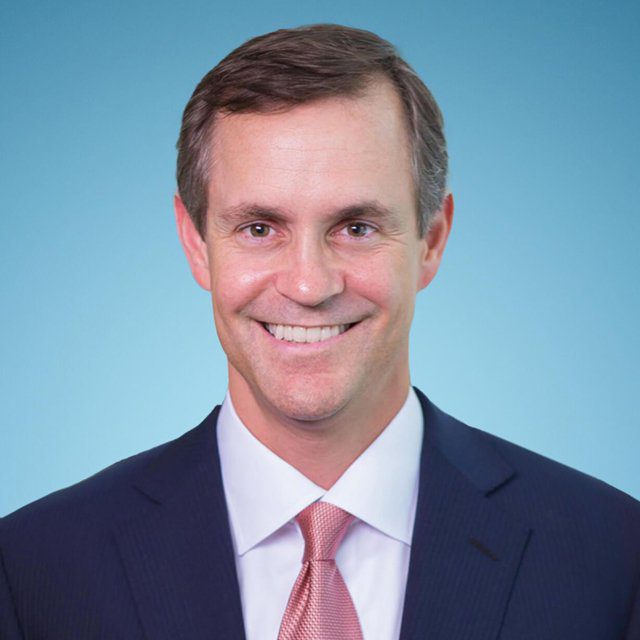Goldman Is Hunting Mass Affluent Investors — and Advisors to Serve Them

Can one of the world’s largest, most powerful — and often controversial — investment banks serving institutions reshape part of itself into a wealth management business attracting mass affluent investors?
Goldman Sachs is in the process of doing just that.
The initial thrust came with its acquisition of the RIA United Capital in 2019. Rebranded as Personal Financial Management, the segment is now doubling down to serve consumers with between $1 million and $10 million in investable assets.
Whether boutiques, the wirehouses or other banks, “we’re competing with whoever has relationships that are deeper than the ones we currently have,” David Fox, a Goldman Sachs partner and head of advisors for PFM, tells ThinkAdvisor in an interview.
In March, he was promoted from running Goldman’s Private Wealth Management’s Southwest region to the newly created PFM position.
There are more than 250 financial advisors and 80 branch offices in the PFM segment now and no shortage of enthusiasm on the part of Fox, 51, to hire more.
“We’re going to grow an advisor at a time,” he says. “My goal isn’t to go out and hire a bunch of people and see what happens.”
The Fox hunt for financial planning-focused advisors runs the gamut from recruiting recent college grads and new advisors — who will be “shaped and molded” — to those running their own practices.
Not on his list are “people who want to cash out of the business and retire here,” he stresses.
Why the focus on the mass affluent? Fox explains: “Historically, we’ve been more of an institutional firm. Over the past five to 10 years, we’ve been broadening our footprint and launched our consumer business.”
An Olympic Gold Medal winner for competitive swimming before stepping into financial services, Fox has spent his entire business career at Goldman, starting as a Private Wealth Advisor in 1999 in Philadelphia.
ThinkAdvisor recently interviewed Fox, who was speaking by phone from his Dallas office. Here are highlights of our interview:
THINKADVISOR: Is Goldman Sachs’ Personal Financial Management focused on client households with $1 million to $10 million in investable assets?
DAVID FOX: It is. But we get clients from a number of sources. One of them is through our corporate relationship. Sometimes that means taking on an executive at a company with a very small amount of liquidity but a high salary and a complex benefits package and maybe some stock.
They need advice and planning help. We’ll do that for them today knowing that if we do a good job, they’ll grow with us in the future.
You were quoted as saying that over the next five years, PFM plans to “exceed 1,000 advisors.” Is that what you told the reporter?
That quote was a little off. I was asked for a number. We didn’t have a plan, and in fact, still don’t.
What I said was that I’m ambitious to grow this business and that if I had my way, we would have as many as 1,000 advisors in five-plus years.
The actuality is that we’re going to grow an advisor at a time.
My goal isn’t to go out and hire a bunch of people and see what happens. What we’re trying to do is establish enough referral flow from our growth programs to put pressure on the business so that we need to hire more people to take care of those clients’ needs. That’s going to drive how many advisors we have.
We can also work on our organic growth capabilities, which will happen naturally, as we have [a number of] advisors that are more experienced.
Can you reveal how many FAs you plan to hire this year?
We have over 250 advisors in our Personal Financial Management business now. We’re in the process, over the next couple of months, to formulate our 2023-and-beyond strategy, which will include advisor growth.
So I don’t have a number to give you, but we’ve made some healthy moves in growth this year. I expect that to accelerate in the years ahead.
What’s your ideal new-hire advisor?
We’re looking at both sides of the spectrum, really filling out the business with the consistent message that the financial planning-led advisor who is a fiduciary wants to make sure they’re bringing the best resources, the best platform, the best risk management capabilities to their clients.
And they see that they can do it here [at Goldman Sachs].
Please elaborate on your plan to seek FAs at both ends of the spectrum.
We’re hiring advisors across the tenure spectrum, including those who have a planning-based background. They may have their CFP or want to get it.
Or they may have been an accountant and don’t want to work in that field [any longer].
They may have graduated with a degree in financial planning or worked at an organization where they’ve put in five years or so.
We have a robust training effort to get them all the licenses we want them to have and make sure their skill set is up to par before they start working with clients.
Please talk about hiring experienced advisors.
We’re open — in the right situations — to very tenured, experienced advisors who may have their own business. But we’re not looking for people who want to cash out of their business and retire here.
We’re looking for people that want to leverage the Goldman Sachs brand, platform and resources — and accelerate their growth.
This is someone who might have all the skill sets we admire and thinks they can grow faster with our brand and resources.
You’re also hiring grads right out of school for a National Advisor Team, as you’ve named it. Correct?
Right. And we’re also looking for people who are early enough in their career that they can be shaped and molded. We’re creating an even more rigorous front-end standard.
Any other category of advisor?
We’re building a small, rapidly growing group that we can take to our corporate clients and other areas where they expect consistency of advice.
How much emphasis are you putting on diversity in hiring FAs?
It’s critically important. We have a commitment for each hiring cycle as we evolve and grow. We want to see increasing levels of diversity.
The firm has targets by population, job function and title. We’re going to do our part to adhere to those.
The goal is to bring more diversity into the front end that we can train, nurture and grow through the organization.
Why is diversity significant?
It certainly plays a big role, and not just because diverse teams have proven to be better; we want to reflect the clients that we serve.
Our country is a broad, diverse nation; and we want to look that way too.
What are PFM’s assets under management?
To my knowledge, we’ve not discussed the PFM numbers publicly, so I can’t give you the number. But I can tell you that the number on our Form ADV [$17 billion] is incorrect. That’s significantly lower than where we are.
Our combined Ayco [corporate-sponsored workplace financial planning unit, which Goldman Sachs acquired] and Personal Financial Management comes to about $115 billion under supervision, and we’re [PFM] a meaningful portion of that.
Do you have an AUM growth target for this year?
Not at this time. There was one in place; but with my arrival, we’re [revising] all our goals and objectives.
[Head of Personal Financial Management] Joe Duran’s team is the largest part of this business still. The growth has been exceptional.
What sort of work arrangement do you have with Mr. Duran?
I work for him! Joe, Larry Restieri and I are co-heads of the Personal Financial Management Group, which encompasses my business.
I have meetings with each of them every day, all day long. We’re very collaborative. We’re all partners of the firm working jointly to grow our businesses in tandem.




